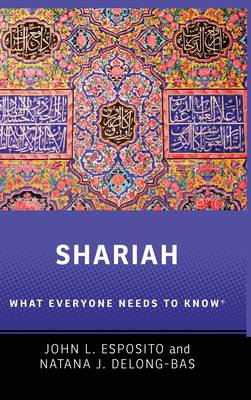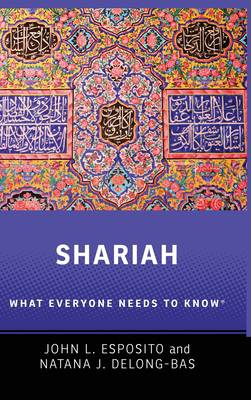
Bedankt voor het vertrouwen het afgelopen jaar! Om jou te bedanken bieden we GRATIS verzending aan op alles gedurende de hele maand januari.
- Afhalen na 1 uur in een winkel met voorraad
- Gratis thuislevering in België
- Ruim aanbod met 7 miljoen producten
Bedankt voor het vertrouwen het afgelopen jaar! Om jou te bedanken bieden we GRATIS verzending aan op alles gedurende de hele maand januari.
- Afhalen na 1 uur in een winkel met voorraad
- Gratis thuislevering in België
- Ruim aanbod met 7 miljoen producten
Zoeken
€ 67,45
+ 134 punten
Uitvoering
Omschrijving
Most Americans and Europeans have by now heard of Shariah. In the West, politicians, media commentators, televangelists, and others have stoked fears that Muslims intend to impose a repressive rule based on Shariah in America and Europe. Shariah has been portrayed as a medieval system that oppresses women, stifles human rights, and imposes harsh punishments like stoning and amputation. In reality, however, Shariah is a complex concept that has been interpreted in many ways over time and around the world. It plays a vital role in the lives of Muslims around the world, offering guidance on everything from personal morality to ritual practices, family life, and finance. In this timely addition to Oxford's What Everyone Needs to Know(R) series, John Esposito and Natana DeLong-Bas offer an accessible and thorough guide to this little-understood, but often caricatured system. The book provides clear and even-handed answers to a wide range of questions, covering the history, development, content, and practice of Shariah. What are its origins? What is a Shariah court and how does it work? How does a person become a Muslim in the eyes of Islamic law? Does Islamic law allow Muslims to marry non-Muslims? What are blasphemy laws, and how are they enforced? How does Islamic law govern trade and contracts of sale? Do Muslims in the West want Shariah Law? Is there a need to protect American and European societies from the imposition of Shariah? By answering the questions that so many people have about Shariah and its role in Muslim life, this book makes an invaluable contribution to the crucial task of fostering mutual understanding in our globalizing, pluralistic societies.
Specificaties
Betrokkenen
- Auteur(s):
- Uitgeverij:
Inhoud
- Aantal bladzijden:
- 352
- Taal:
- Engels
- Reeks:
Eigenschappen
- Productcode (EAN):
- 9780199325054
- Verschijningsdatum:
- 11/04/2018
- Uitvoering:
- Hardcover
- Formaat:
- Genaaid
- Afmetingen:
- 211 mm x 142 mm
- Gewicht:
- 640 g

Alleen bij Standaard Boekhandel
+ 134 punten op je klantenkaart van Standaard Boekhandel
Beoordelingen
We publiceren alleen reviews die voldoen aan de voorwaarden voor reviews. Bekijk onze voorwaarden voor reviews.












